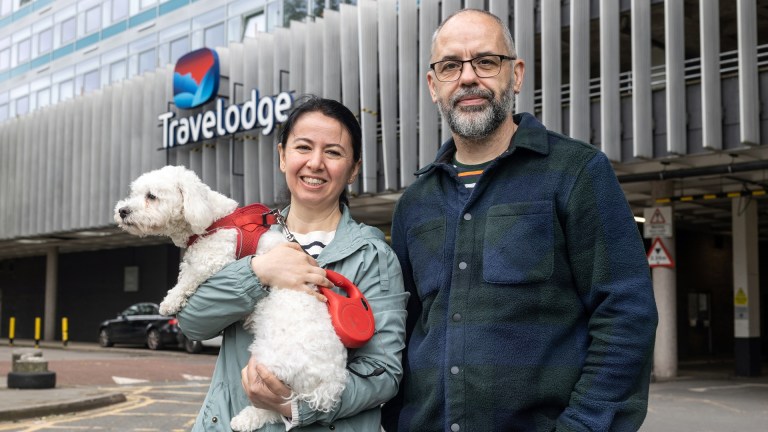That means that the government is spending more on housing than ever before but a higher proportion is being spent on housing benefit than building new homes.
In 1975-76, central government was spending the equivalent of £22.3bn on housing with only £1bn of that expenditure on benefits and £21.3bn on building new homes. By 2021-22, the £30.5bn spending on housing comprised £3.7bn on building new homes and a mammoth £26.8bn on housing benefit.
That outlay is why governments have been reluctant to keep local housing allowance (LHA) pegged to cover the bottom of 30% of rental homes on the market in recent years.
The discrepancy between housing benefit and rents meaning that no properties on the private rental market were affordable for low-income renters in some parts of the country while LHA was frozen.
When Jeremy Hunt announced LHA rates would be unfrozen for the first time in four years at last year’s autumn statement, it cost the government more than £1bn.
But the Tory chancellor did not announce that LHA rates would rise again this year.
Advertising helps fund Big Issue’s mission to end poverty
Since then, private rents have continued to rise – up 8.4% in the 12 months up to September 2024 according to the Office for National Statistics – and so has homelessness, hitting new record highs.
That has led to calls from across the housing and homelessness sectors for the government to raise LHA rates, particularly as promised renting reforms are still making their way through parliament.
Writing for the Big Issue ahead of the budget, Joanna Elson, the chief executive of older people’s charity Independent Age, said LHA rates needed to increase to protect pensioners.
“Without this change, more older people will be at risk of homelessness. Our data shows that at least 61% of older housing benefit recipients saw their rent rise in the past year,” said Elson.
Ben Twomey, chief executive of Generation Rent, echoed fears that Reeves’ budget will see more renters struggling to stay in their homes.
“Renters were hoping for bold measures that would make rents more affordable. Extra investment in building social homes, and improving councils’ ability to build, through changes to Right to Buy, are steps in the right direction,” said Twomey.
Advertising helps fund Big Issue’s mission to end poverty
“But renters who rely on universal credit or housing benefit are getting their support frozen once again while rents continue to climb. The chancellor’s failure to raise local housing allowance next April will put more renters at risk of rent arrears and homelessness.”
Anti-poverty charity JRF has led calls for the government to permanently peg local housing allowance to rents.
Research from JRF and Manchester Metropolitan University found renters would be £243 worse off in 2025/26 and £703 poorer by the end of parliament in 2029 if LHA remains frozen.
That would see 50,000 private renters in poverty, including 30,000 children, over the next five years.
A further 60,000 people would be pulled into deep poverty while 80,000 people, including 30,000 children, would find themselves in very deep poverty by the end of parliament, the research found.
Rachelle Earwaker, senior economist at JRF, said: “Until there are enough social homes, the government can’t abandon the millions of people on low incomes who are living in the private rented sector because they have no other option.
Advertising helps fund Big Issue’s mission to end poverty
“Instead of not knowing whether they’ll be able to pay their rent because the support they get has been frozen, private renters need the security of knowing LHA will rise in line with local rents each year.”
Lord John Bird, founder of the Big Issue and crossbench peer, praised the Labour government for investing in social housing in the budget after pledging to inject £500m into the Affordable Homes Programme.
But he warned that more will be needed to get to grips with the housing crisis and reduce welfare spending that is threatening to overwhelm local authorities.
Lord Bird said: “Putting money towards 5,000 new social and affordable homes is a start but for the 1.3 million people currently sitting on waiting lists for homes, this is clearly a drop in the ocean. These homes are the vital foundations from which people build their way out of poverty. It’s this kind of investment that will stop spiralling welfare costs from draining the public purse.”
Do you have a story to tell or opinions to share about this? Get in touch and tell us more. Big Issue exists to give homeless and marginalised people the opportunity to earn an income. To support our work buy a copy of the magazine or get the app from the App Store or Google Play.
Big Issue is demanding an end to extreme poverty. Will you ask your MP to join us?
Advertising helps fund Big Issue’s mission to end poverty










